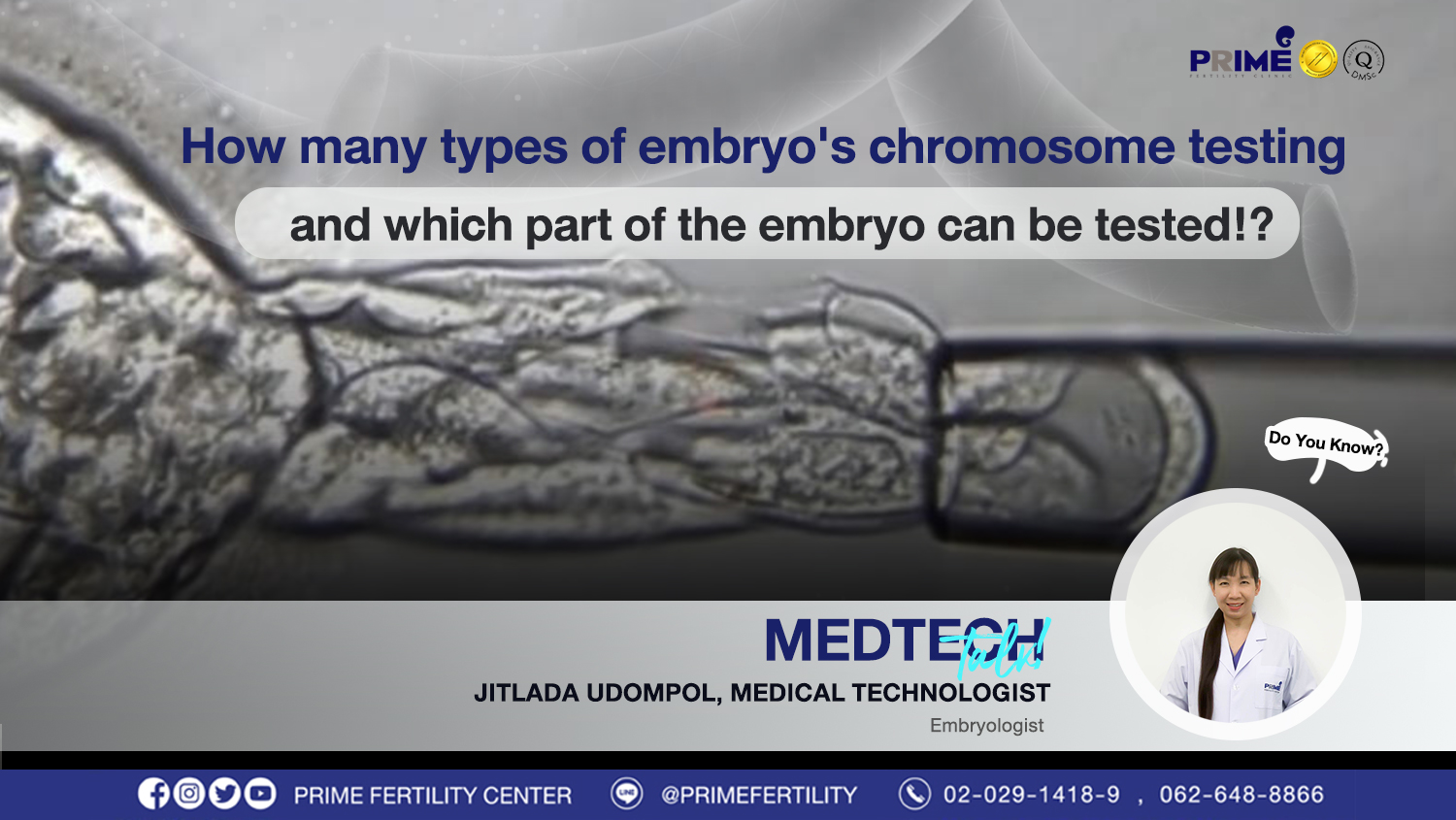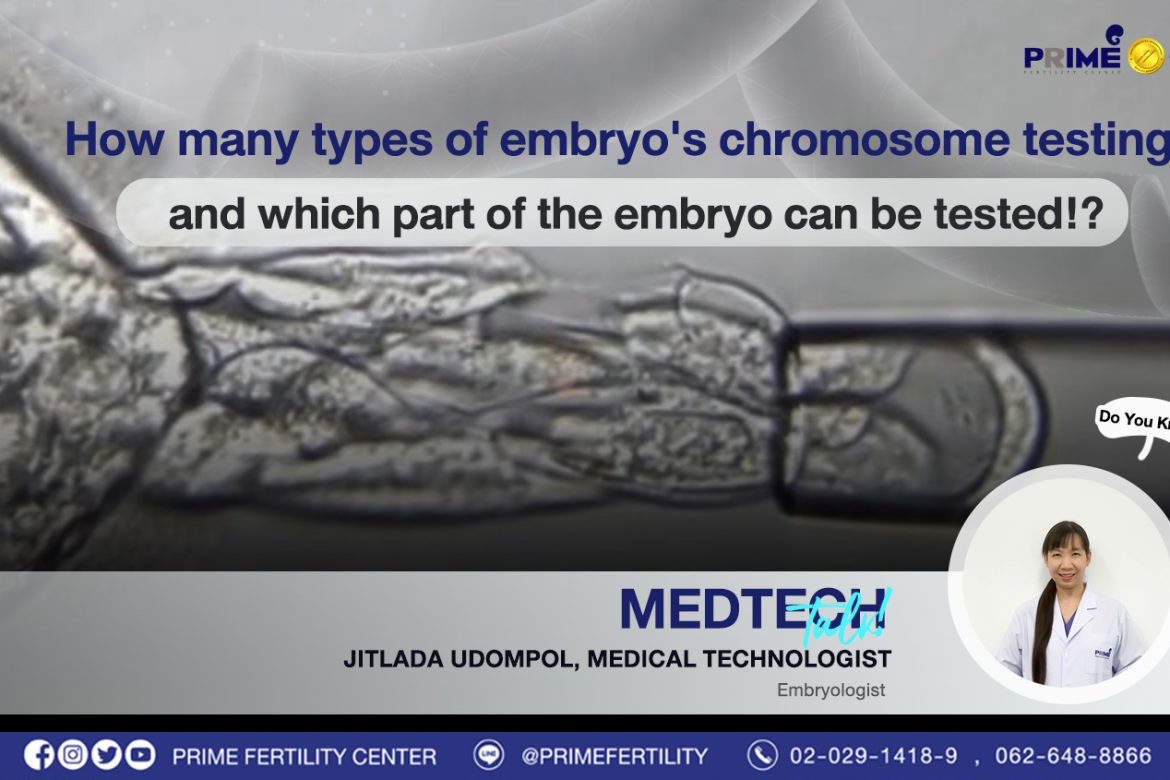How many types of embryo’s chromosome testing and which part of the embryo can be tested!? There are 3 types of Preimplantation Genetic Testing:

1. Preimplantation Genetic Testing for Aneuploidy (PGT-A) The test is to examine the number of chromosomes whether an embryo contains 23 pairs of chromosomes.
2. Preimplantation Genetic Testing for Monogenic Disorders (PGT-M) The test is used to diagnose single-gene mutation on an embryo prior to implantation. Suitable for a couple with the risk of hereditary genetic diseases caused by single-gene disorder. The abnormalities may come from the inheritance of dominant and recessive gene, e.g., Thalassemia, Duchenne muscular dystrophy, cystic fibrosis, respiratory disease. And for parents who have previous child received HLA matching treatment.
3. Preimplantation Genetic Testing for Structural Chromosomal Rearrangement (PGT-SR) The test is to screen a couple of husband or wife with chromosomal abnormalities caused by chromosomal translocation without extra or missing genetic material. This abnormality is called balanced structural chromosomal rearrangement.
There are 2 types of genetic testing based on parts of embryo:
1. Invasive Embryo Biopsy including polar bodies of oocyte or embryo, cells of day 3 embryo and cells of embryo in blastocyst stage.
2. Non-Invasive Preimplantation Genetic Testing including blastocoel fluid biopsy and spent culture medium. However, these 2 mediums are still in the process of research and development.
MT. Jitlada Udompol
Embryologist
–
Reference: Prime Fertility Center Co., Ltd.



